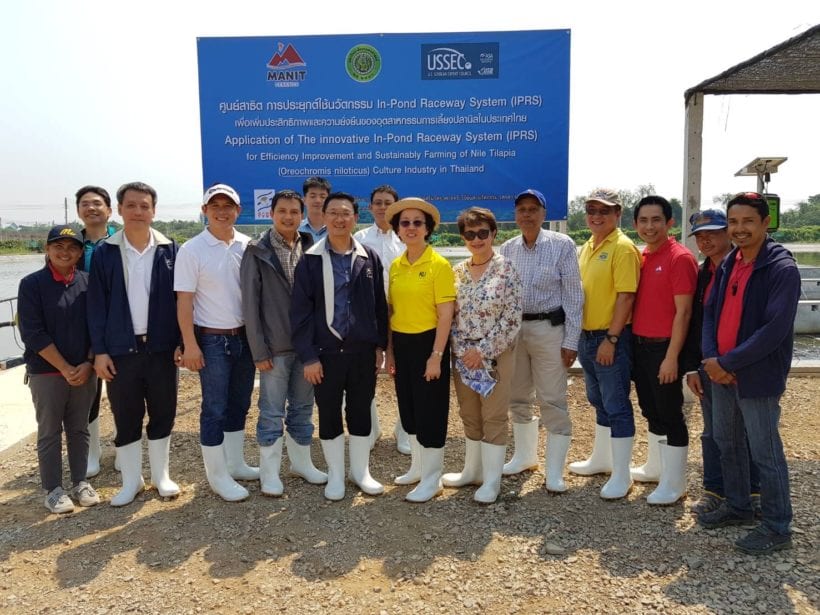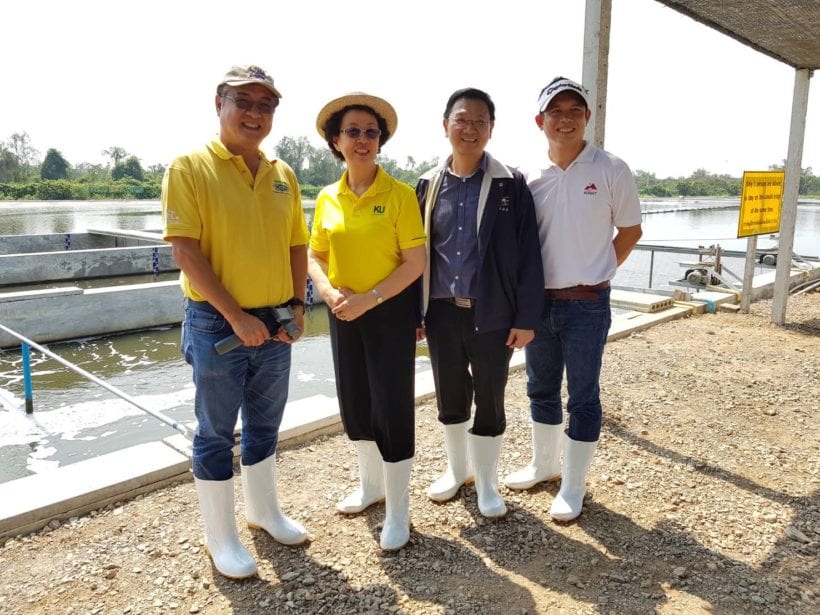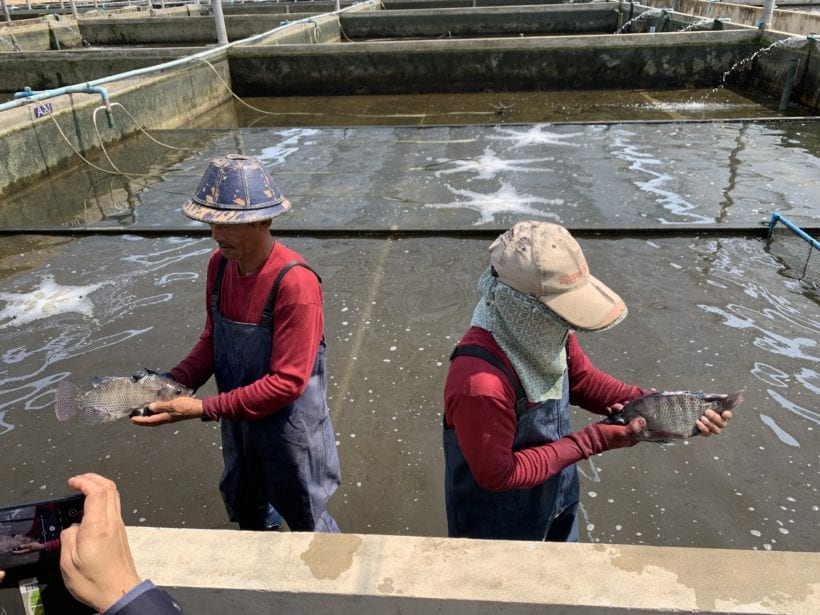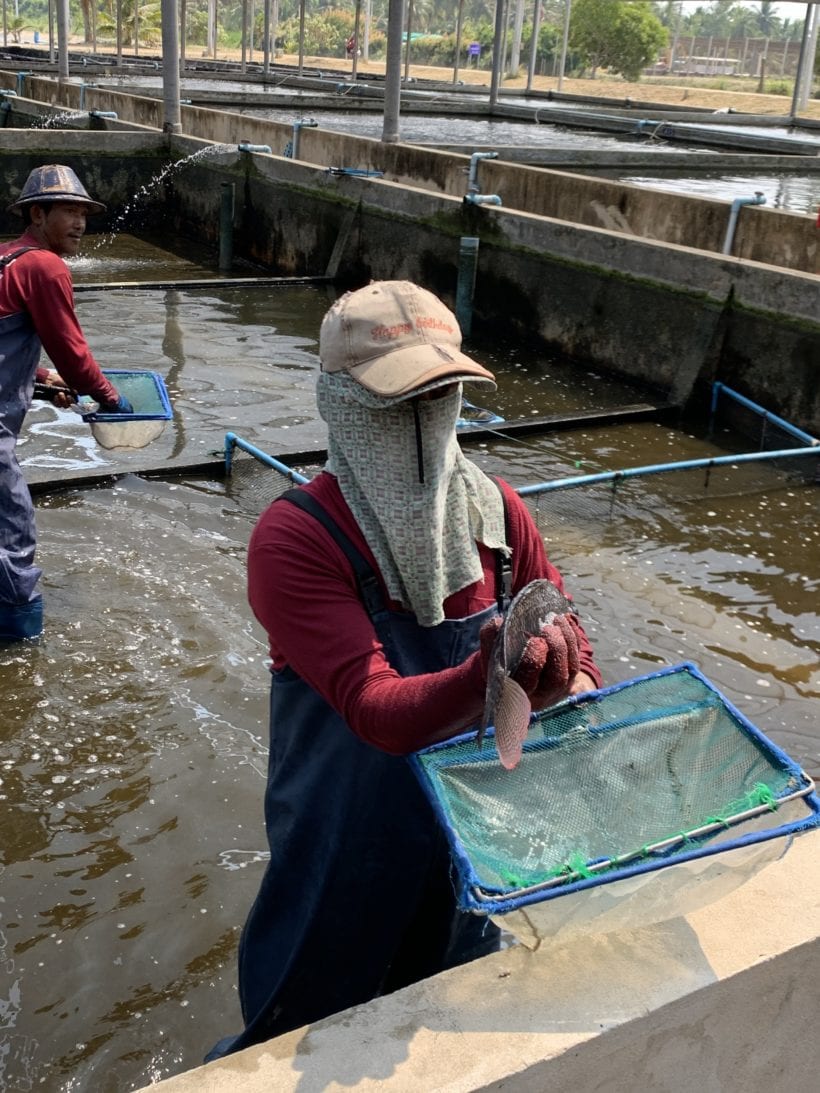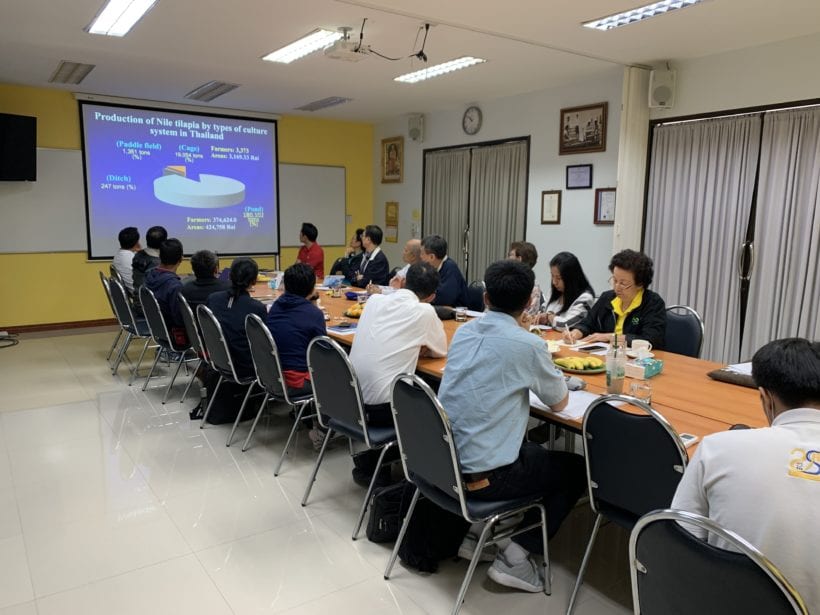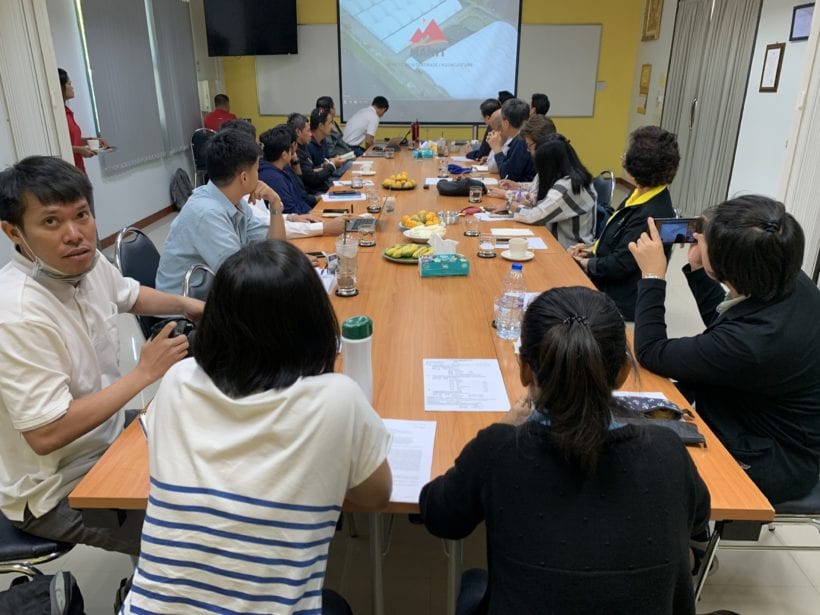Aqua Farm Demonstrates IPRS to Thailand Science and Research Innovation Committee
- Category:
- Aquaculture
- General News
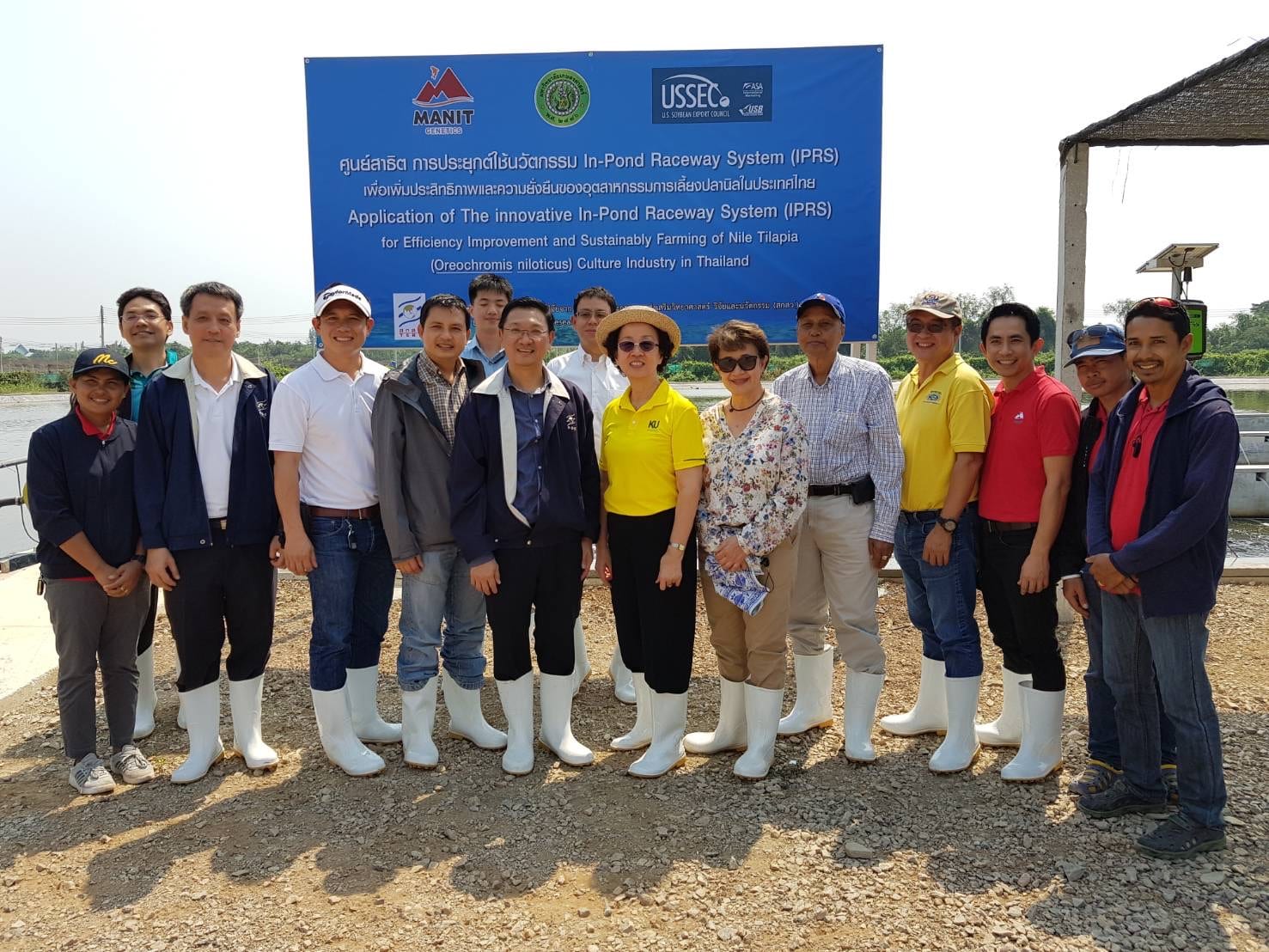
In late 2018, USSEC began working with Manit Farm in Thailand, convincing them that the In Pond Raceway System (IPRS) would be a good fit. In March 2019, Manit Farm began IPRS construction, completed it in August, and began stocking fish for its first cell on October 1.
Manit Farm now has three IPRS cells, all of which are operational and have been stocked with 20,000; 17,500; and 15,000 fish in cells A, B, and C respectively.
Thailand Science Research and Innovation who helped to fund to this project visited Manit farm on February 10 to update the status of the IPRS technology. Manit Farm staff and professors from Kasetsart University introduced the IPRS principle to the committee. Staff presented on the topic of culture operation and Kasetsart University discussed water quality parameters.
USSEC gave a presentation on its activities and involvement in this project.
Following the presentations, the committees asked many questions about IPRS technology. They were very pleased with this project and hope this system will transfer to other farmers in Thailand, which was the main project objective. After lunch, the committees visited the IPRS farm and Manit Farm’s operation.
“I believe IPRS Technology will change the culture system for fish production in Thailand soon,” says Dr. Thongchai Suwansichom, Associate Professor, Thailand Science Research and Innovation.
As fish production increases, so will the usage of U.S. Soy. Thailand fish farmers can change their culture system by using IPRS technology. The inclusion of U.S. in aquafeed is about 20 to 30%, and Thai feedmills are planning to partner with U.S. Soy in IPRS technology.
